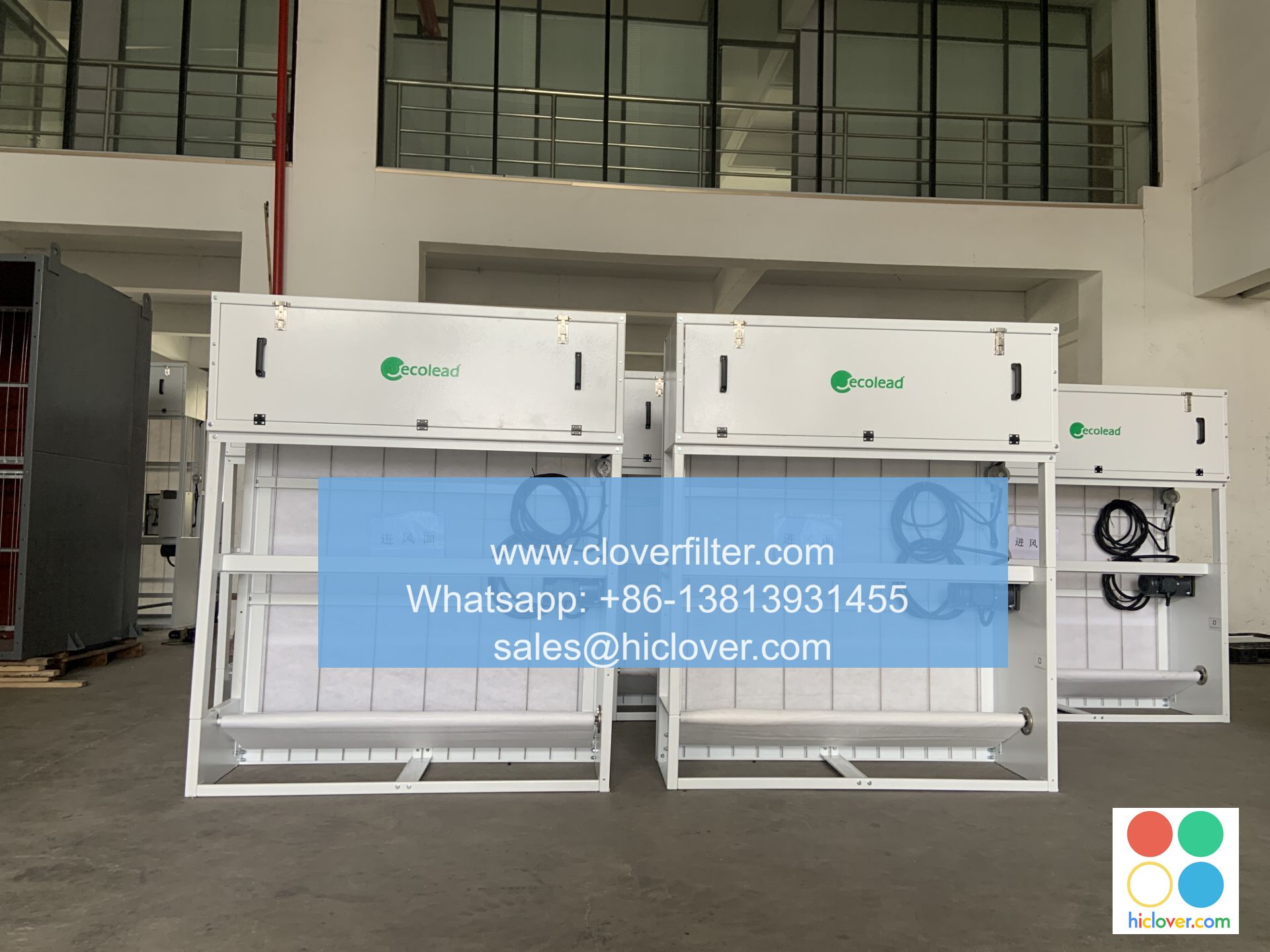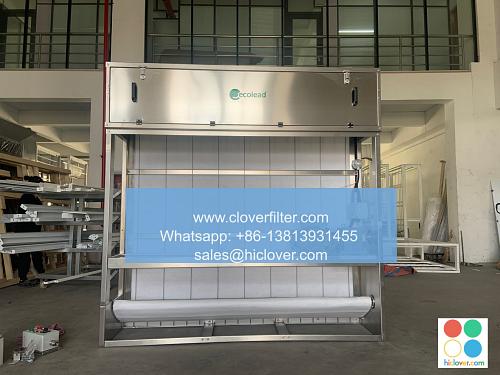The Science Behind Automatic Roll Air Filters and Their Application in Vancouver’s Semiconductor Manufacturing

The city of Vancouver has emerged as a hub for semiconductor manufacturing, with several prominent companies setting up their facilities in the region. One of the critical components in these manufacturing processes is the air filtration system, which plays a vital role in maintaining the cleanliness and purity of the environment. Among the various types of air filters used, automatic roll air filters have gained popularity due to their efficiency and effectiveness. In this article, we will delve into the science behind these filters and their application in Vancouver’s semiconductor manufacturing.
Automatic roll air filters are designed to provide a continuous supply of clean air by automatically replacing the dirty filter media with a new one. This process is achieved through a rolling mechanism, where a new filter media is unwound from a roll and replaced with the old one, which is then wound onto another roll. The filter media used in these systems is typically a pleated or non-pleated material, such as fiberglass or synthetic fibers, which are designed to capture particles as small as 0.3 microns.
The science behind automatic roll air filters lies in the principles of aerodynamics and filtration. As the air passes through the filter media, the particles are captured due to the combined effects of interception, impaction, and diffusion. Interception occurs when the particles come into contact with the filter fibers and are retained. Impaction takes place when the particles are forced to change direction and collide with the filter fibers, resulting in their capture. Diffusion is the random movement of particles, which increases the likelihood of their capture by the filter fibers.
In semiconductor manufacturing, the air quality is critical, as even the smallest particles can contaminate the products and affect their performance. Automatic roll air filters are particularly useful in these applications, as they provide a high level of filtration efficiency and can handle large volumes of air. Additionally, they are designed to operate continuously, minimizing downtime and ensuring that the manufacturing process is not disrupted.
The application of automatic roll air filters in Vancouver’s semiconductor manufacturing industry is widespread. Companies such as Broadcom, Intel, and TSMC have installed these systems in their facilities to maintain the required level of air cleanliness. The filters are typically used in conjunction with other air purification systems, such as HEPA filters and ultraviolet (UV) lights, to provide a comprehensive air cleaning solution.
The benefits of using automatic roll air filters in semiconductor manufacturing are numerous. They include improved air quality, increased productivity, and reduced maintenance costs. By providing a continuous supply of clean air, these filters help to prevent contamination and minimize the risk of product defects. Additionally, they reduce the need for frequent filter replacements, which can be a time-consuming and costly process.
In conclusion, automatic roll air filters play a critical role in maintaining the air quality in Vancouver’s semiconductor manufacturing industry. Their effectiveness is based on the principles of aerodynamics and filtration, which enable them to capture particles as small as 0.3 microns. By providing a continuous supply of clean air, these filters help to prevent contamination, improve productivity, and reduce maintenance costs. As the demand for semiconductors continues to grow, the importance of automatic roll air filters in these manufacturing processes will only continue to increase.
Frequently Asked Questions (FAQs)
-
What is the typical filtration efficiency of automatic roll air filters?
Automatic roll air filters can capture particles as small as 0.3 microns, with a filtration efficiency of up to 99.97%.
-
How often do the filters need to be replaced?
The filters typically need to be replaced every 1-3 months, depending on the usage and air quality.
-
Can automatic roll air filters be used in other industries?
Yes, these filters can be used in a variety of industries, including pharmaceuticals, food processing, and hospitals, where high levels of air cleanliness are required.
-
What is the average cost of an automatic roll air filter system?
The cost of an automatic roll air filter system can vary widely, depending on the size and complexity of the system, but can range from $5,000 to $50,000 or more.
-
Are automatic roll air filters compatible with other air purification systems?
Yes, these filters can be used in conjunction with other air purification systems, such as HEPA filters and UV lights, to provide a comprehensive air cleaning solution.

